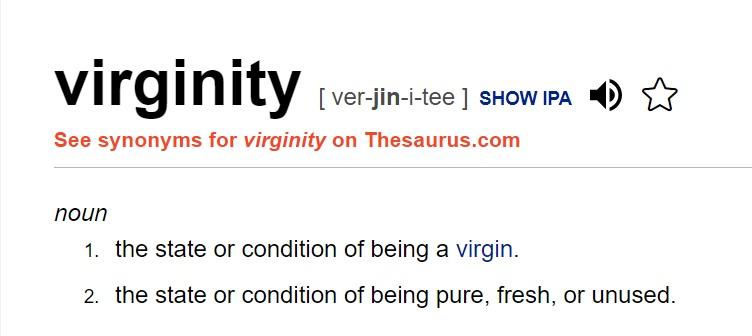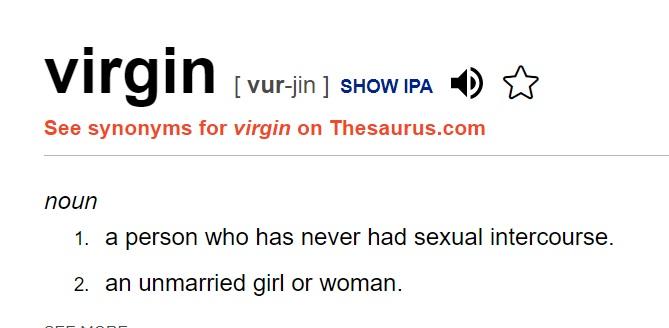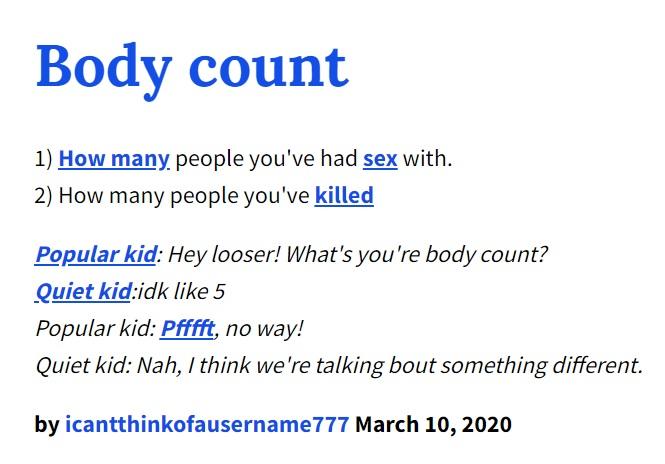If you spend some time with American media, you might get the idea that virginity is a very important thing. Here are some of the examples I can remember seeing lately:
“Sex Drive” – Ian sets off on a cross-country trip to lose his virginity, which he sees as embarrassing.
“American Pie” – Four teenage boys enter a pact to lose their virginity by prom night.
“Jane the Virgin” – A young, devout Catholic woman discovers that she was accidentally artificially inseminated.
Even if not a major plot point, losing of one’s virginity can often be a B-story or a “very-special episode.”
“Yellowjackets” – Natalie and Travis experience relationship discord because one was a virgin, and the other not.
“Sex Education” – Otis offers intimacy advise to his schoolmates even though he is a virgin himself.
“Beavis and Butthead” – two thunderously stupid teenage boys obsess about and try to have sex.
I asked our Likewise group to suggest other shows and movies dealing with this topic: feel free to check it out!
Since media is a reflection of the cultures that create it, this made me go down a rabbit hole about virginity.
What is virgnity
Let’s start with Dictionary.com:

Neither definition satisfies. The first doesn’t tell us anything about what this means, and the second has clear built-in sexism – it implies that virginity (whatever it is) is somehow superior, described with words with clear positive connotation. Does it surprise you that definitions clearly established by experts could be tinged with sexism, racism, sizeism, and agism? Because they’re assembled and agreeed-upon by human beings, of course they would be.
I went BACK to Dictionary.com for an explainer on what “being a virgin” really means:

Unfortunately, this also does not satisfy. One definition is related to sexual behavior, and the second related to a demographic status. One definition pertains to both men and women, and the second to only women. This is data from just one source, but check your favorite dictionary for their take. My guess is that even these established sources disagree on what “virgin” or “virginity” even mean, which tells you something about how we think about it as a construct. Researchers who work with statistics regarding virginity must clearly spell-out how they plan to measure virginity. Do they assess it as a thought, behavior, or social marker?
For the purposes of discussion, we will use the following operational definition as provided by Planned Parenthood:
“The most basic definition of virginity is never having had sex.”
What is sex?
Having studied psychology for many years and consumed a lot of research on the topic, my best answer is:
IT DEPENDS!
The seminal answer to every question psychological in nature. It’s unsatisfying. Human beings are most comfortable when things are clearly-defined, and human sexuality is rarely so. I demonstrate this with my undergraduate students by playing a game called “Is It Sex?”

With a anonymous poll, I asked a series of questions:
Is it sex when you contribute to another person’s orgasm?
Is it sex when you put your mouth on another person’s genitals, and vice versa?
Is it sex when you insert something into your partner’s anus?
Y’all, the responses are all over the place. About 50% consider oral sex to be sex, and the other 50% not. I was young during the Monica Lewinsky fiasco, but I do remember seeing this on the news and being flabbergasted by the debate. To make things more complicated, our feeling around sex change as we grow, develop, and have more life experiences. My teenage self and my today-self may have answered some of these questions differently. As a whole, we would probably agree that this is messy data to work with. Imagine a health-related questionnaire that asks teenagers whether they’ve ever had sex. How could we possibly know what it means when they say “yes” vs “no” when we have no idea what their personal definition of sex is?
Why does it matter?
As discussed above, it means that we should take care when we consume statistics about sex. The research methods should be critiqued insofar as who collected it, which questions were asked, and how they were asked. That’s not to say that we should throw the baby out with the bathwater, but the messiness of the data suggests that markers of sex are subjective rather than objective. What sex means to you, to me, and the milkman are likely completely different things. Sex is subjective more than objective.
Perhaps this perspective can also lead to us a place of empathy and understanding. If you run in certain circles, you may have seen material related to “body counts. From UrbanDictionary.com:

Wow, another very unhelpful set of definitions 🙂
Isn’t it sad to reduce the entire spectrum of sexual attitudes and behaviors to ::checks notes:: dead bodies?
Perhaps even sadder is that it exactly prays into the narrative that virginity is somehow preferable, more godly, and more desirable in a partner. These are antiquated beliefs (usually tied to organized religions) that sex is somehow sinful, harmful, and undesirable. I’m looking forward to presenting ample research findings that sex can be normative, health-promoting, and intimacy-building.
